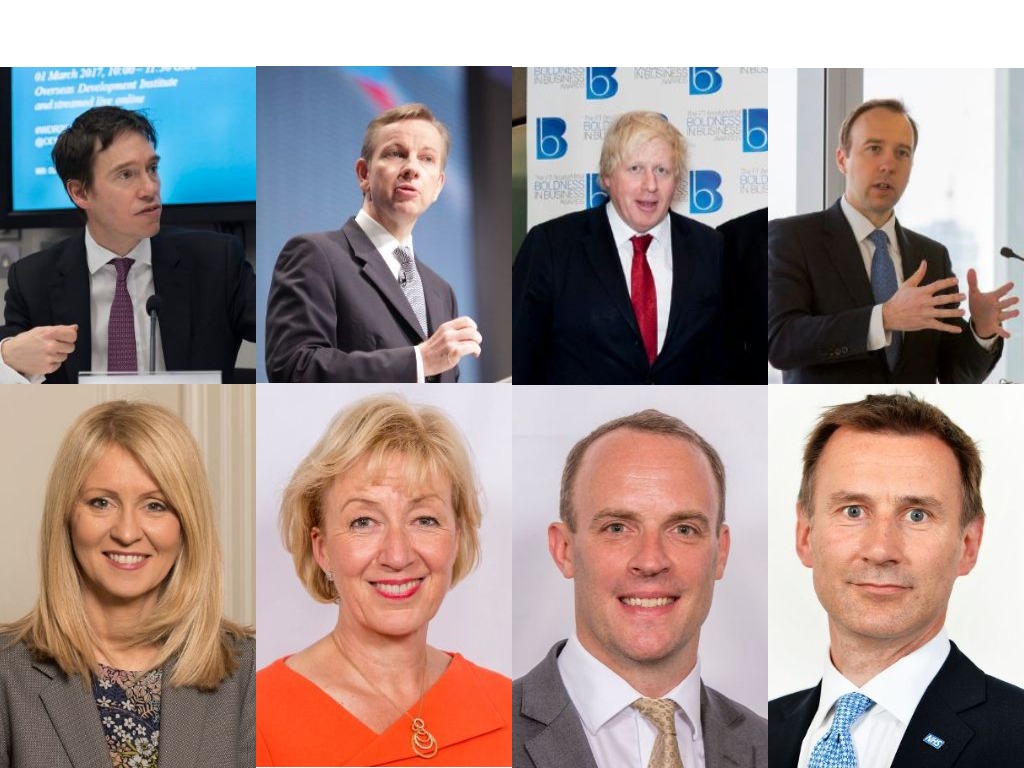Theresa May has announced that she is stepping down as Prime Minister in two weeks’ time, triggering a race for leadership of the Conservative Party.
Theresa May was tearful on Friday, 24 May, as she announced her three-year reign would end on Friday, June 7.
Thirteen Tory candidates have so far declared their intentions to run for leadership of the party, although two have since stepped down, with the deadline for entering the race set for June 10.
More than 18 in total were expected to throw their hats into the ring.
RightsInfo has done some digging into how each of the declared candidates stack up on matters of human rights, based on what they have previously said and how they have voted.
This story will be updated as more candidates declare their intention to run.
1. Boris Johnson, Former Foreign Secretary
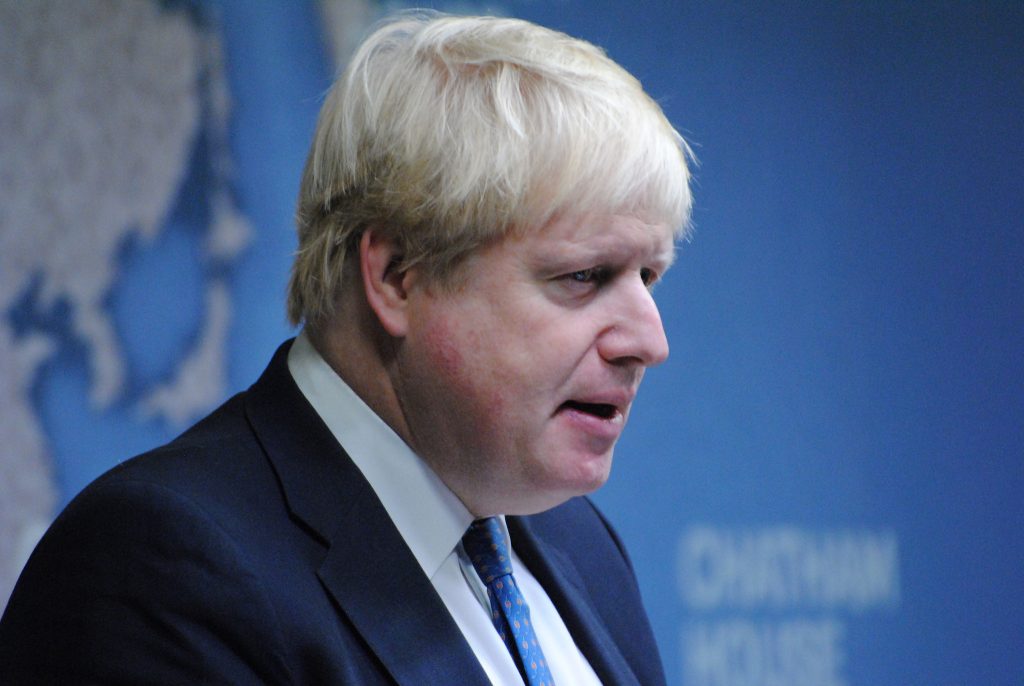
Image Credit: Chatham House/Flickr.
Former Foreign Secretary and Telegraph columnist Johnson is considered by many to be the most likely candidate for the Tory leadership.
Months before resigning from his ministerial post, he said: “Standing up for human rights is not only the right thing; it also helps to create a safer, more prosperous and progressive world.”
He described “championing” human rights as “integral” to the work of the Foreign Office and the everyday work of British diplomats.
Nevertheless, when it came to foreign affairs, watchdog Human Rights Watch (HRW) described his approach to human rights as “weak, inconsistent, and often incoherent”.
HRW’s Advocacy and Press Officer Myrto Tilianaki cited the sale of £4.6bn of arms to Saudi Arabia since the start of the war in Yemen until June last year as a prime example.
In August, Jonhson was also referred to the Equality and Human Rights Commission (EHRC) for a controversial Telegraph column in which he compared Muslim women who wear burqas as “looking like letter boxes” – prompting accusations of Islamophobia.
While it branded Mr Johnson’s comments as “inflammatory and divisive”, the EHRC said it had no powers to investigate the matter. The remarks were also deemed not in breach of the Conservative Party’s code of conduct.
Monitoring website TheyWorkForYou indicates that Johnson has “generally voted against” laws to promote equality and human rights but has also “generally supported” equal gay rights.
2. Andrea Leadsom, Former House of Commons Leader

Former Leader of the House of Commons, Andrea Leadsom. Image Credit: Department for Energy & Climate Change/Flickr
Leadsom is a former financial institutions director of Barclays Bank and Conservative activist since university.
She was the last candidate standing against prime minister Theresa May in the 2016 leadership race.
However, she pulled out after suggesting that having children made her a better choice of candidate. Theresa May and her husband Philip have been unable to have children.
According to TheyWorkForYou, Leadsome has almost always voted against laws to protect human rights and equalities.
In June last year she voted against retaining the EU Charter of Fundamental Rights after exiting the European Union and also voted in favour of repealing the Human Rights Act 1998.
The Charter sets out civil, political, economic and social rights which are protected by various EU institutions.
She “positively abstained” from the equal marriage vote in 2013.
She said this was because while she wanted to support gay rights, she could not “vote for a measure that risks centuries of faith based belief in marriage as between a man and a woman.”
3. Dominic Raab, Former Brexit Secretary
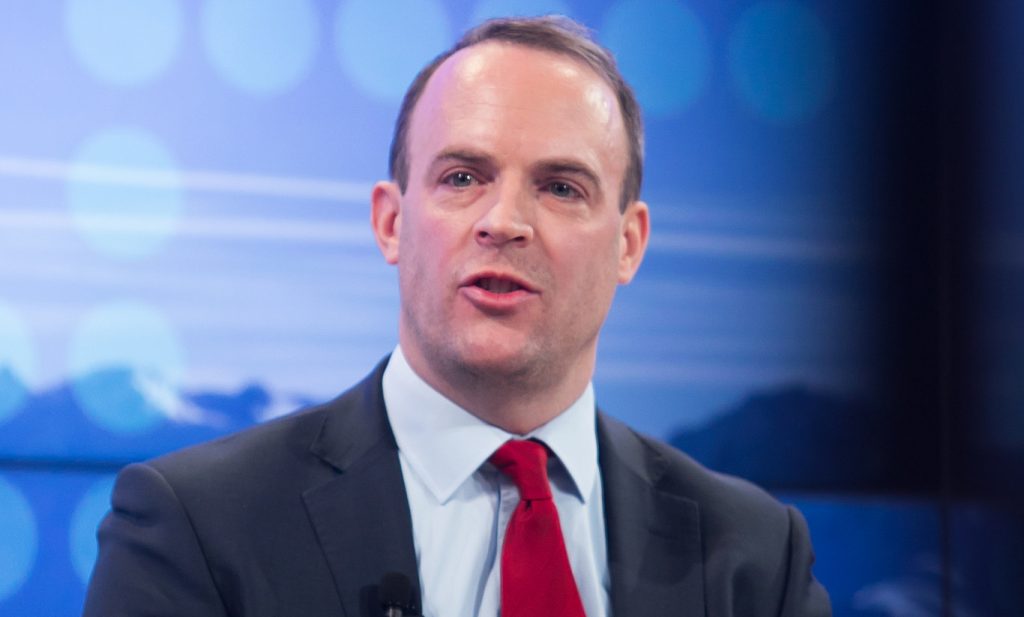
Image Credit: World Economic Forum/Flickr
Ardent Brexiteer Dominic Raab, the MP for Esher and Walton, resigned as Brexit Secretary in November last year after disagreeing with PM May’s deal.
Announcing his resignation on Twitter, he said: “‘I cannot in good conscience support the terms proposed for our deal with the EU.”
Raab has been an outspoken critic of the Human Rights Act, the piece of legislation which embeds international human rights protections as part of our laws.
In his previous role as Justice Minister, he masterminded plans to replace the act, claiming he was worried about the sovereignty of British Parliament and judges, as well as how rights could be expanded.
He also added that he believed the original Human Rights Act was “rushed” and “flawed”.
In 2011 he said “the tabloids blame everything on the HRA and, in my view, the NGOs think it’s perfect. I think there’s a middle ground. The HRA didn’t do a great deal to protect some of our freedoms – against ID cards, the DNA database, against some of the surveillance where children were followed home from school to check their catchment area.”
He has also been dubious about human rights more generally too, saying they ‘run riot’, and are ‘skewed’.
In a Telegraph column, he pointed to a man who could not be deported following a conviction related to the 2011 London Riots, criticising the right to family life for preventing his immediate deportation, saying “Article 8 is being expanded to protect the criminals’ rights not the families” and making human rights a “dirty word”.
He argued the government should introduce legislation to refuse foreign criminals the right to appeal deportation with their Article 8 rights.
4. Rory Stewart, International Development Secretary
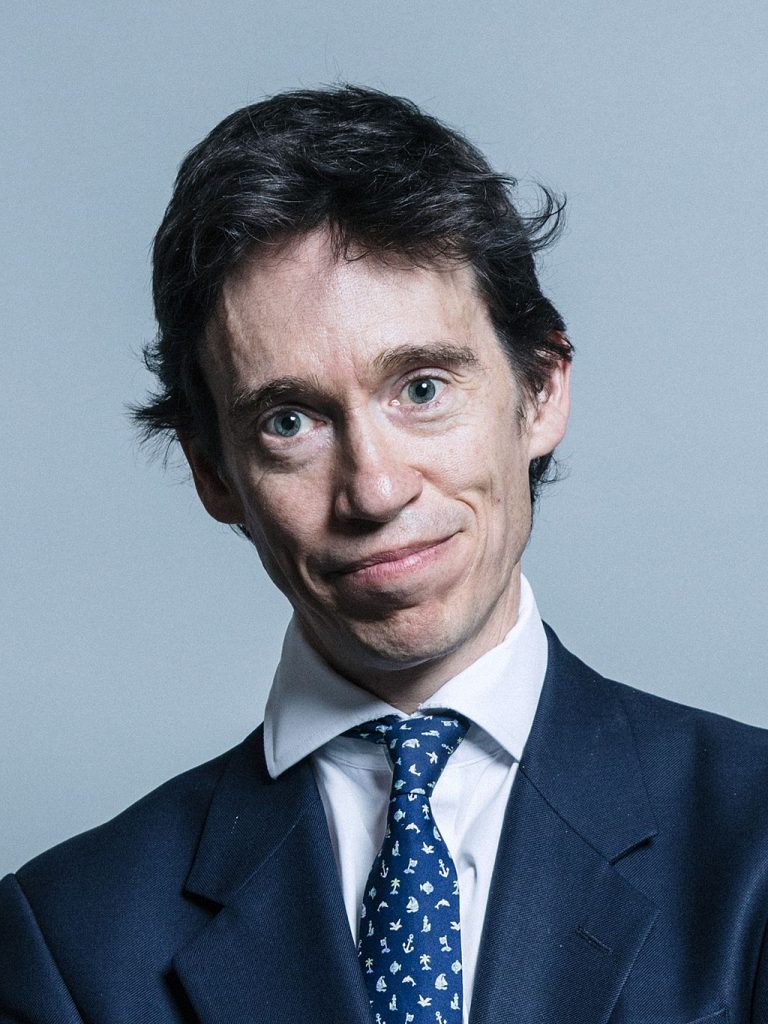
Image Credit: Chris McAndrew/Wikimedia
Before entering into politics, Rory Stewart briefly worked as an infantry officer in the Army before joining the diplomatic service. While on leave from, he walked for 21 months crossing Iran, Afghanistan, Pakistan, India and Nepal.
He was elected into Parliament in 2010 as the MP for Penrith and The Border and appointed International Development Secretary this month, after previously serving as a Minister in the Justice Department and Foreign Office.
Human rights are based on notions of dignity and of inviolability, and they are in their nature universal.
Rory Stewart, Secretary of State for International Development
Stewart reportedly became a professor of human rights at Harvard University in 2010, aged only 37.
In a 2013 parliamentary debate, he appeared to speak in detail about the philosophical merits of human rights, saying: “Human rights are based on notions of dignity and of inviolability, and they are in their nature universal.
“To say that somebody has a human right is a statement about their moral status.”
However, he also criticised the European Court of Human Rights saying it is “using the wrong principles to come to the wrong judgments”.
His voting record shows that he voted to scrap the Human Rights Act in 2016 as well as the Charter of Fundamental Rights in 2018.
5. Esther McVey, Former Work and Pensions Secretary
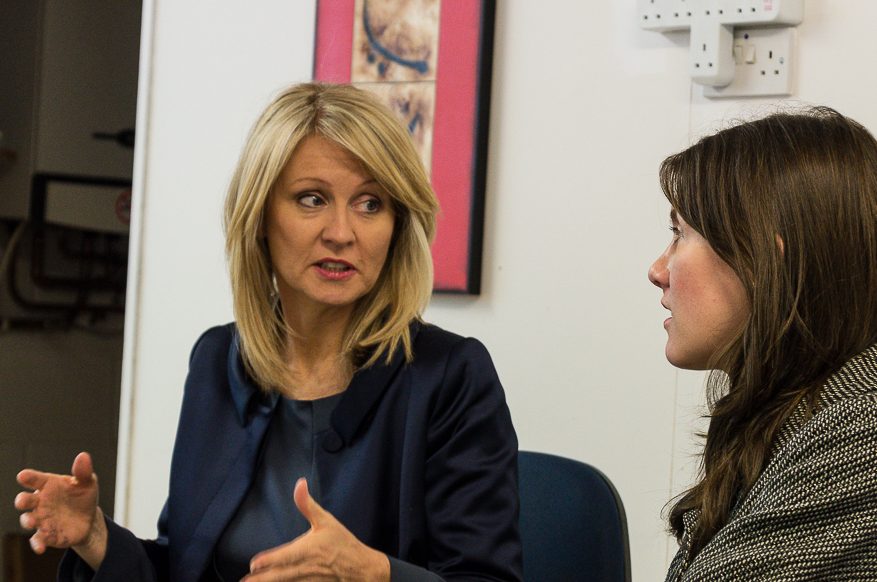
Image Credit: Mrgarethm/Flickr
Before entering into politics, the MP for Tatton studied law at university and worked as a producer and broadcaster for the BBC.
She was elected to Parliament in 2010 and appointed as Work and Pensions Secretary in January last year.
However she resigned in November after disagreeing with the Prime Minister May’s EU withdrawal agreement.
McVey has been an active campaigner for repealing the Human Rights Act and replacing it with the British Bill of Rights.
In 2011 she told the BBC: “Isn’t it about time we introduced a British Bill of Rights to change the ludicrous situation whereby a convicted foreign killer, like Mohammed Ibrahim, can avoid deportation by claiming the right to family life, given he killed Amy Houston thereby denying all relatives the right to family life?”
However, her voting record shows that she was absent during the 2012 vote on repealing the Human Rights Act. She did vote in favour of scrapping the Charter of Fundamental Rights in 2018.
6. Jeremy Hunt, Foreign Secretary
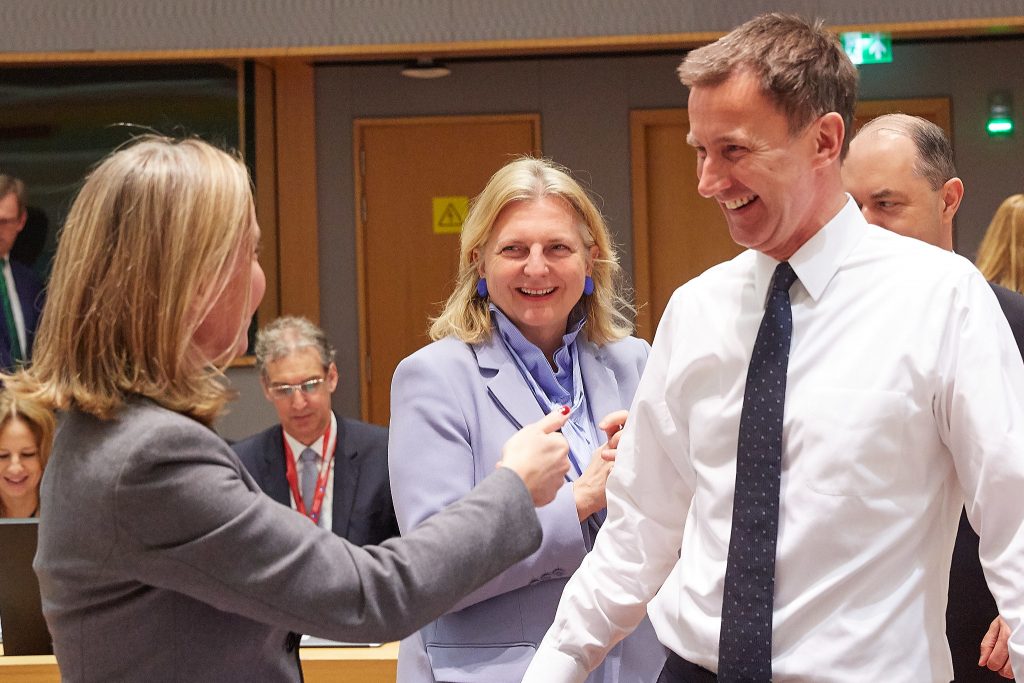
Image Credit: Photonews.at/Georges Schneider
The MP for South West Surrey assumed the mantle of Foreign Secretary, after six years as Health Secretary, following Boris Johnson’s departure in July last year.
Earlier this week, Hunt appointed his former Parliamentary Under Secretary Rita French as a roving ambassador for human rights – a newly created role.
“Standing up for human rights is not only the right thing – it helps to create a stable, more prosperous world,” he said, in statement released to announce French’s appointment.
Leading human rights barrister Kirsty Brimelow QC told RightsInfo that she welcomed the creation of the position, but added the role would become a “laughing stock” if the UK does not practice what it preaches.
Hunt has not actively campaigned against the Human Rights Act, but has criticised how it has been implemented in the UK.
As Culture Secretary, Hunt told journalists that rights were being upheld in a way which was “inconsistent with what parliament decided when we implemented the Human Rights Act.”
Nevertheless, in 2016 he voted in favour of scrapping the Human Rights Act and, two years later, supported scrapping the Charter of Fundamental Rights.
As Health Secretary, Jeremy Hunt was fiercely criticised for insufficient NHS investment and an unprecedented strain on services.
Another controversy from Hunt’s time as Health Secretary was the junior doctors’ strike following a contract dispute over hours and working conditions. Hunt admitted that the junior doctors “had a point” about the potential impact of overworked doctors on patient safety.
7. Matt Hancock, Health Secretary
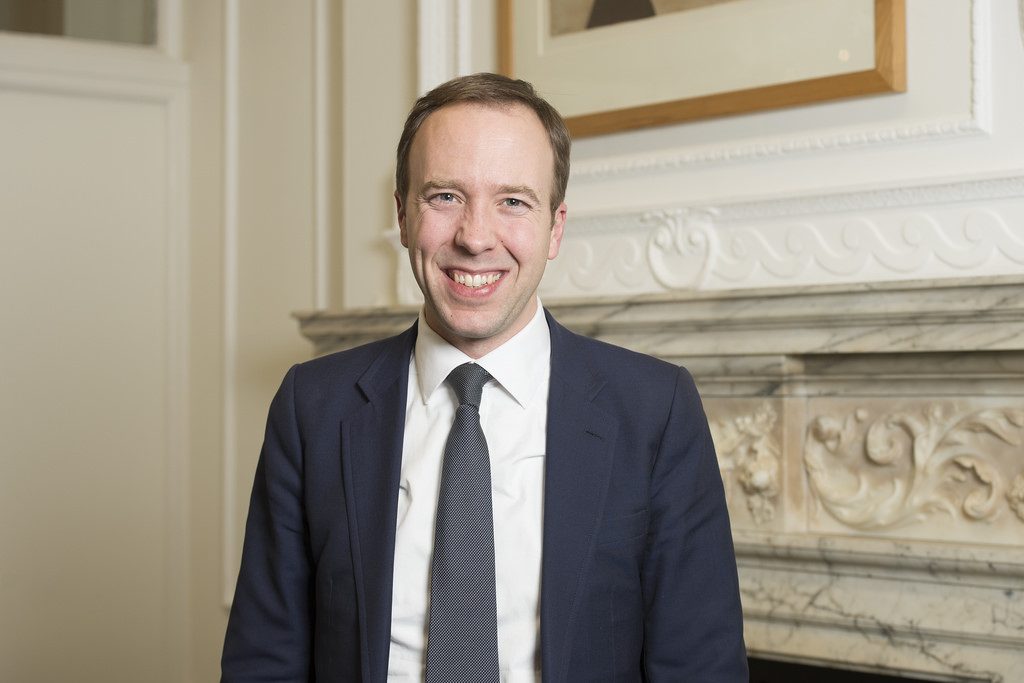
Image credit: Flickr.
Hancock was elected into parliament in 2010 and appointed Health Secretary in July last year after six months as culture secretary.
Before entering into politics he worked as an economist at the Bank of England.
In November, he ordered watchdog the Care Quality Commission (CQC) to conduct an urgent investigation into the practice of locking people with learning disabilities and autism in segregated hospitals indefinitely.
The preliminary findings were published last week, with the deputy chief inspector of hospitals Paul Lelliott saying that urgent action was needed to protect the human rights of the most vulnerable.
On Wednesday, a BBC Panorama investigation revealed wide spread abuse and “psychological torture” of patients at one such hospital in County Durham.
Hancock accepted the CQCs recommendations in full, saying: “I hope this is a turning point so everyone receives the care they need.
“I will not let these people down – they deserve better.”
However, speaking to RightsInfo, disabilities campaigner Simone Aspis argued that the recommendations do not go far enough.
“This is a political choice,” she said. “To spend thousands of pounds a week locking people up in institutions – with that money we could provide excellent care in the community.
According to voting monitor TheyWorForYou, Hancock voted to scrap Human Rights Act in 2016 and the EU Charter of Fundamental Rights two years later.
8. Michael Gove, Environment Secretary
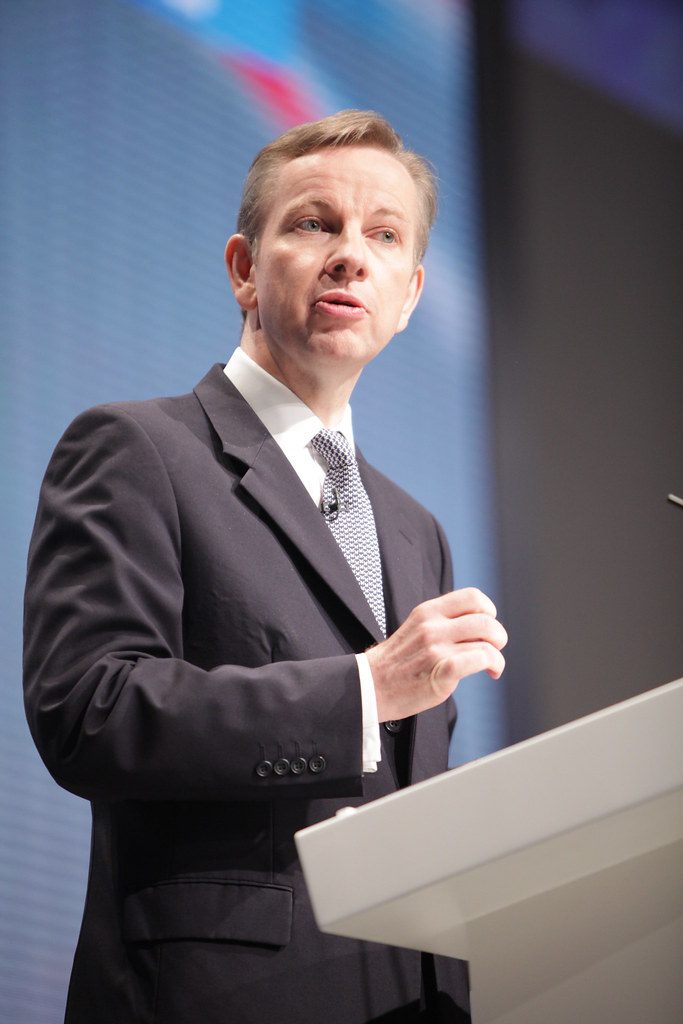
Image credit: Paul Toeman/Flickr.
The environment secretary entered into Parliament in 2005 and has previously served as Justice Secretary and Education Secretary.
He headed the victorious Vote Leave campaign in 2016 alongside Boris Johnson.
While Justice Secretary, Michael Gove promised to replace the Human Rights Act, which enshrined the European Convention of Human Righs in UK law, with a British Bill of Rights.
His purported rationale for doing so was to assert the supremacy of domestic judges of the European Court of Human Rights in Strasbourg.
Speaking to a House of Commons committee in February 2016, he said: “Human rights are seen as something that are done to British courts and the British people as a result of foreign intervention rather than being something which we originally championed and created and seek to uphold.
But, in a response from campaigners Liberty, this notion was dismissed as “myth-spreading”.
“The Human Rights Act brought rights home, and allowed British judges to interpret and apply the Human Rights Convention for the first time,” wrote director’s assistant Bella Sankey.
According to TheyWorkForYou, Gove also “generally voted against” laws promoting equality and human rights – including voting down the Charter of Fundamental Rights and in favour of repealing the Human Rights Act.
9. Sajid Javid, Home Secretary
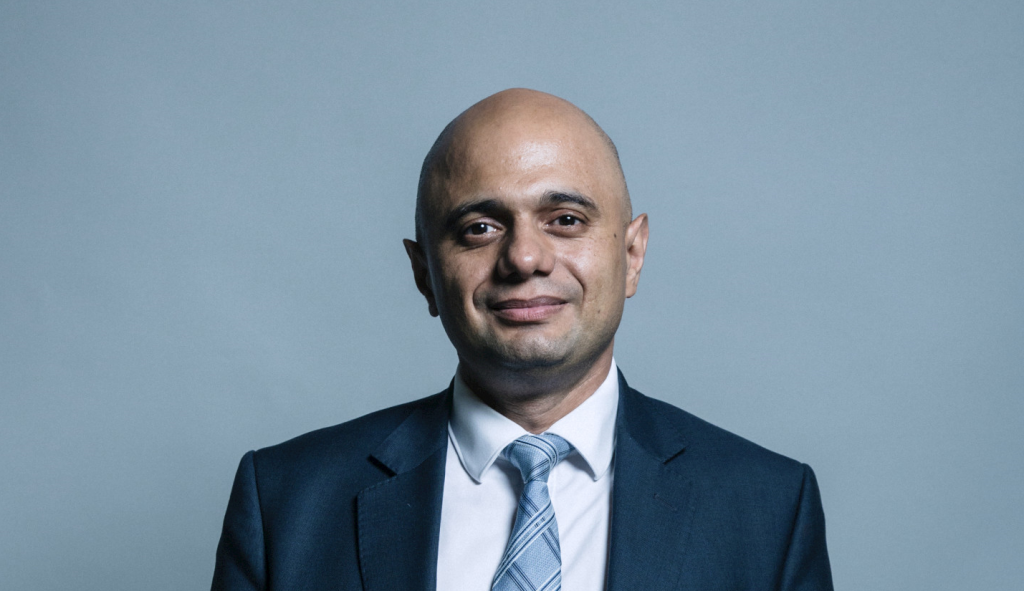
The Conservative MP for Bromsgrove was promoted to Home Secretary in April last year after serving as Communities Secretary.
His predecessor, Amber Rudd, was forced to resign due to the ongoing fallout from the Windrush Scandal, where thousands of people who arrived in the UK legally were threatened with deportation.
In statement released shortly after taking up his new post, Javid said: “I end by making one thing crystal clear: we will do right by the Windrush generation”.
He set up a dedicated taskforce to handle the cases of those affected and regularise the status in the UK, to ensure they have the necessary citizenship documents.
A compensation scheme was also set up to give payments to those who suffered emotional distress or unemployment as a result of the scandal.
In July last year, he also hinted that the he would consider ending the indefinite detention of immigrants following a damning report by the former prisons ombudsman Stephen Shaw.
“My ultimate goal is to ensure that our immigration system – including our approach to detention – is effective and humane,” Javid told the Guardian.
However, Javid made headline news in February when he decided to strip east London 19-year-old Shamima Begum of her British citizenship following her decision join terrorist group ISIS in Syria as a jihadi bride.
International law forbids nations from making people stateless by revoking their citizenship.
He did so hoping that Bangladesh would accept her as a citizen on the count of her parents heritage – but they did not.
Stuck in a Syrian refugee camp, the teenager’s newborn child died weeks later.
Javid’s introduction of knife crime prevention orders – which could place a range of curbs on suspects such as limiting social media use and curfews – has also provoked alarm among human rights groups.
Those who breach the conditions could face up to two years in prison.
The order is set to be trialled in London at an unspecified date this year, after the Offensive Weapons Act was granted royal assent earlier this month.
Rosalind Comyn, the policy and campaigns officer at Liberty, said: “These misguided proposals allow the police to impose punitive conditions on people’s everyday activities, based on mere hearsay evidence.”
TheyWorkForYou indicates that Javid has “generally voted against laws” to promote equality and human rights but in favour of equal gay rights.
10. Kit Malthouse, Housing Minister, *Note: Has Now Stepped Down
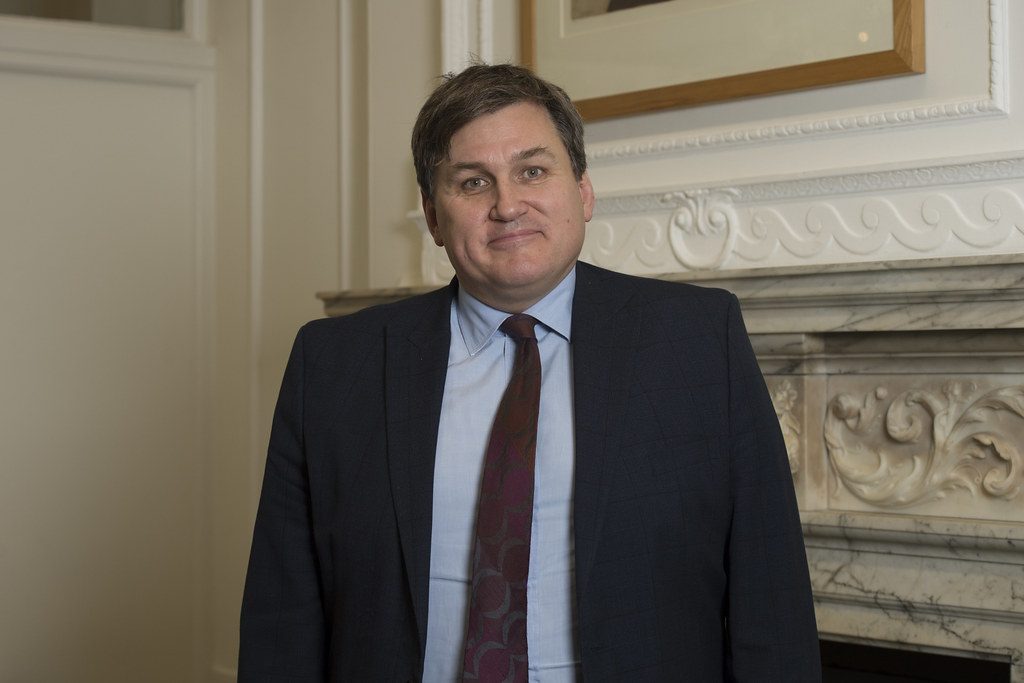
Image Credit: No 10/Flickr.
Kit Malthouse is perhaps best known for brokering the “Malthouse compromise”, an eleventh hour amendment to Theresa May’s Brexit plan which was hoped to bring together Tory Brexiteers and Remainers. However, the Brexit deadlock remains.
The MP for North West Hampshire was elected into Parliament in 2015 and is currently a housing minister.
In January, Malthouse ordered combustability tests on cladding materials used on high-rise buildings across the country amid new fire safety fears.
The tests are reviewing cladding made from materials other than the aluminium composite (ACM) panels used on the Grenfell Tower.
Emails posted on Malthouse’s website indicate he follows the Conservative Party’s line regarding its wishes to scrap the Human Rights Act in place of a British Bill of Rights.
Before becoming an MP, Malthouse also served as a London Assembly Member from 2008 to 2016 and as the Deputy Leader of Westminster City Council.
He was asked at a 2008 London Assembly meeting if he employed a policy of “hosing [rough sleepers] out of doorways” during his time as the council’s deputy leader.
“We certainly instituted a policy of making life – it sounds counterintuitive and cruel – more uncomfortable; that is absolutely right,” he responded.
“One of the major issues when Simon Milton became leader of Westminster, one of the targets he set me was to more than half the number in Westminster.
“Working with a number of charities and groups across Westminster we analysed the problem and one of the issues was that in many ways – it sounds counterintuitive – life was too comfortable on the street.
He added: “I know that sounds an awful thing to say but let me finish the argument, OK?
“There were, at the time, plenty, well-funded – we managed to get quite a lot of funding – night shelters and night centres; we managed to extract a cheque for £130,000 for St. Martin’s so it could stay open all night; plenty of them. The Passage Day Centre similarly.
“The difficulty was getting rough sleepers into those centres so that they could be interacted with, their needs could be met.”
11. James Cleverly, Under Secretary of State for Exiting the European Union, *Note: Has Since Stepped Down
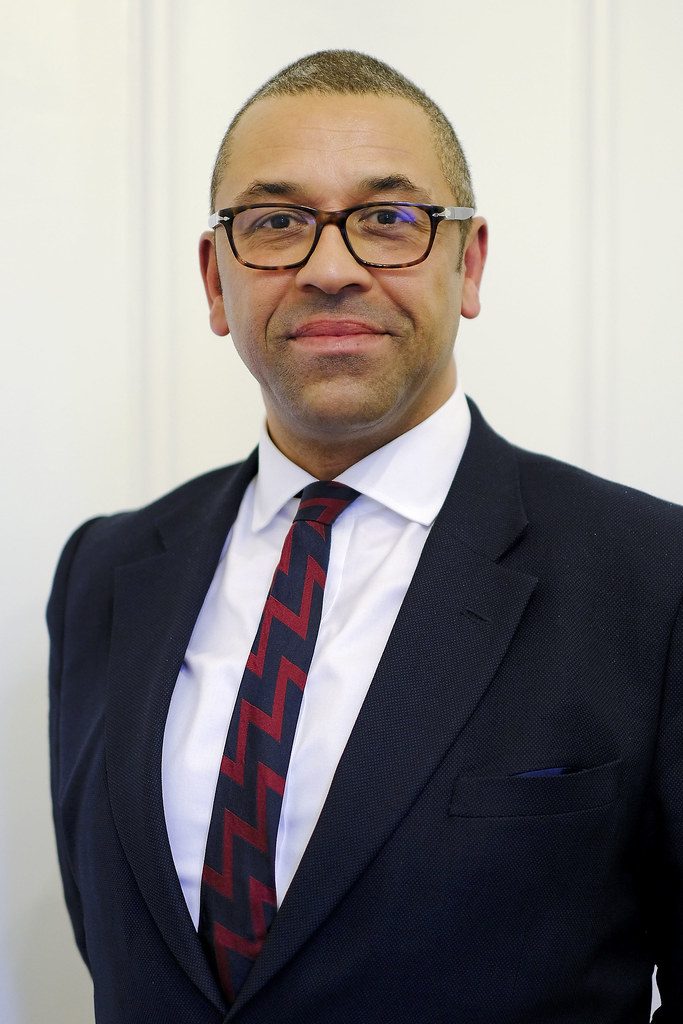
Image Credit: Number 10/Flickr.
James Cleverly was elected as MP for Braintree in 2015 and was appointed as a Brexit minister last month, after serving as the Conservative Party’s deputy chairman.
Having entered into politics relatively recently, his human rights voting record and views are not as lengthy as others in this list.
In a 2015 episode of BBC’s Daily Politics, joined by Brexiteer Jacob Rees-Mogg, he defended his party’s manifesto pledge to scrap the Human Rights Act in favour of a British Bill of Rights.
“The idea that in 1996, before the Human Rights Act was brought into legislation, that we lived in some nasty despotic jingoistic nation I think it really quite ridiculous,” he said.
He added: “When British courts come to a judgement that disagrees with a judgement in the European Court, it is the British court that should be supreme.”
Also on the show was Labour MP for Kilburn Tulip Siddiq, who argued: “I still haven’t heard an answer to what they fundamentally disagree with in the Human Rights Act.
She added: “For us sitting in this studio human rights may seem very remote, they might seem very far away, but there are people in this country who rely on those rights.”
In 2017, Cleverly was called on to step down as the patron of a charity supporting disadvantaged people in South East England after voting in favour of cutting Employment and Support Allowance (ESA) – a welfare benefit for disabled people.
12. Mark Harper, Former Immigration Minister
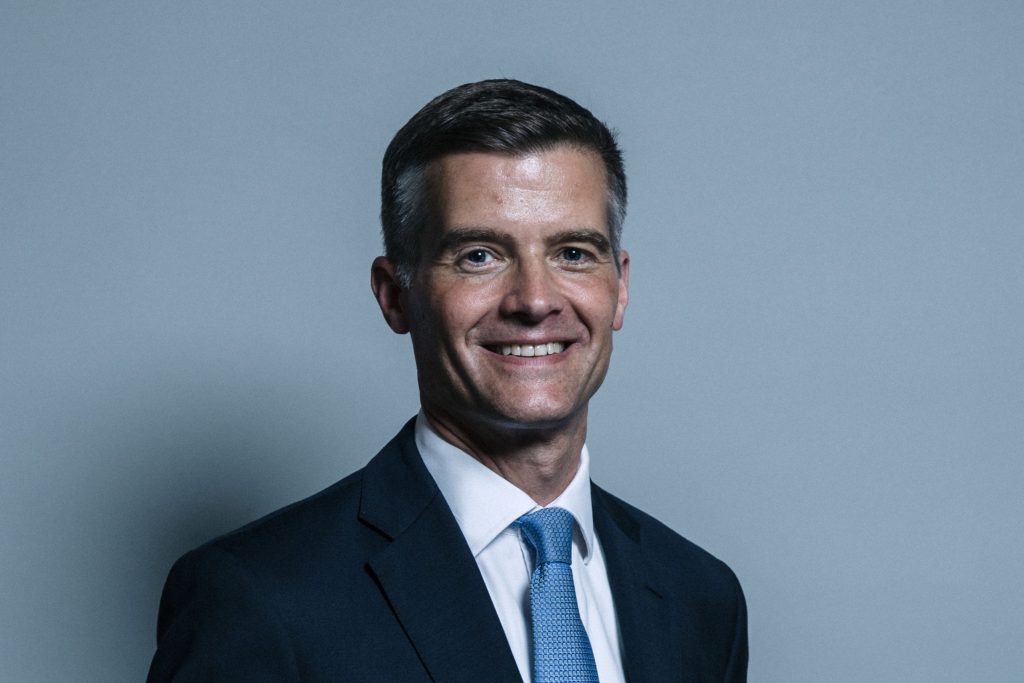
Image Credit: Chris McAndrew / Wikimedia Commons.
Mark Harper was elected to Parliament as Conservative MP for the Forest of Dean in 2005.
He became an immigration minister in 2012, during Theresa May’s tenure as Home Secretary, and was behind the controversial “go home” vans.
The vans, emblazoned with the words “go home or face arrest”, were banned by the Advertising Standards Authority and criticised by Labour MP Yvette Cooper as “using the language of the National Front”.
However, he defended them saying: “I don’t see any problem with saying to people who have no right to be in the UK… they can’t be here any more.”
Harper resigned in 2014 when it emerged he was employing an undocumented migrant as his cleaner.
According to voting monitor TheyWorkForYou, he voted in favour of scrapping the Human Rights Act in favour of a British Bill of Rights as well as the Charter of Fundamental Rights.
13. Sam Gyimah, Former Universities Minister
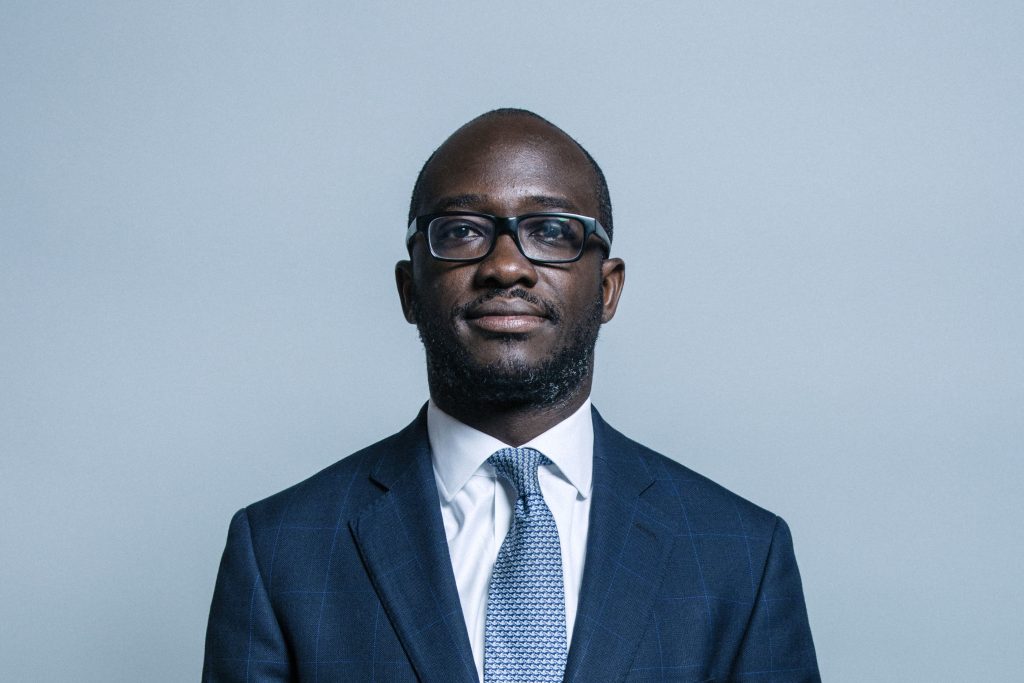
Image Credit: Chris McAndrew / Wikimedia Commons.
Sam Gyimah was elected Conservative MP for East Surrey in 2010 and served as Universities Minister from January last year until November, when he quit over PM May’s Brexit deal.
He stands apart from all other leadership candidates as the only contender to offer a further referendum on Brexit.
Gyimah spoke positively about human rights in a 2017 speech on United Nations Day for the Elimination of Racial Discrimination.
“We know that tackling racial inequality in the workplace is about upholding basic human rights,” he said.
“In this country, we should acknowledge how far we’ve already come
“If we take the arrival of the SS Windrush at Tilbury in June 1948 as the symbolic birth of multi-ethnic Britain, that same year the Universal Declaration of Human Rights set a global framework for equalities legislation.”
He added: “The 1988 [sic] Human Rights Act further boosted our protection against discrimination on the grounds of sex, race, colour, language, religion, birth, political opinion and so on.”
However, in 2016 he voted in accordance with his party’s whip to scrap the very same act and replace it with a British Bill of Rights, as well as voting to get rid of the Charter of Fundamental Rights last year.
Those who are expected to throw their hats into the Tory leadership ring, but are yet to confirm, are:
- Penny Mordaunt, Defence Secretary
- Steve Baker, European Research Group
- Justine Greening, former Education Secretary
- Nicky Morgan, former Education Secretary
- Amber Rudd, former Home Secretary
- Liz Truss, Chief Secretary to the Treasury
- George Freeman, MP for Mid Norfolk
- Priti Patel, Former International Development secretary
Watch this space.

